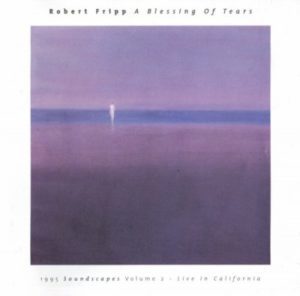A eulogy is a speech given at a memorial service in memory of a person who has died.
The purpose is to recall the defining qualities and highlights of a life lived in a way that benefits the audience, particularly the family.
It should capture the essence of the life lived. That means it can be a historical snapshot and amusing as well as poignant.
As you will read from this example from my brother Robert Fripp, it gives the background and insight into the loved one’s life for those who do not know the entire life story.
A Blessing of Tears Eulogy for Edie Fripp by Robert Fripp
The Eulogy for Edie Fripp was delivered by her son Robert at Wimborne Minster on July 30, 1993, during the service to celebrate her life and commemorate her death.
“My dear little mother slipped gently from this life Thursday evening, the 22nd of July, between 9:07 and 9:10 while I was holding her hand, just three months short of her 79th birthday. Twelve hours later her heart was still warm.
She was born on October 14, 1914, in Abertillery with a twin brother who died an hour after birth. For this reason, being a twin, her temperature was always lower than normal.
Edie spent the first 17 years of her life in Aberbeeg, a Welsh mining village in what is now the county of Gwent. When she was 17, having never been christened, she organized her own christening and took the name of Edith, the name given to her by her parents. She never liked the name Edith and often mentioned to me that if she had had more sense, she would have called herself by another name.
Her home was in a terrace of houses built by her grandfather and his eight sons for themselves and their families. This was Greenland Terrace. One of the sons was killed during the construction when a wall fell on him.
The center of village life in this Welsh mining community was the chapel where Edie’s talents for singing, elocution, and social interaction were encouraged and practiced.
This chapel background may also have been the origin of her anti-clericalism. Barney Hopkinson (the officiating minister) is the only man of the cloth for whom she ever felt affection and respect, and who might have led her to regular church-going. Otherwise, she said that she felt closer to God in Poole Harbor or Bournemouth Bay while fishing on my father’s boat. At least, this was what she told a visiting evangelizing former vicar of Wimborne Minster when he called.
Edie’s father, Joe Green, was the pigeon racing champion of Wales for three consecutive years with his blue checker pigeon “Lily of the Valley.” Joe lost a leg in a mining accident, and in the following week, as Joe hovered between life and death, my grandmother’s hair turned white. He died in 1948 at the age of 59 from angina, a result of his occupation. My mother was very close to her father, a connection maintained throughout her life, and she always considered a visiting pigeon an omen of good fortune.
As I left my home to attend the service, a pigeon rose from a cable and flew above me.
Gladys Louise Green, nee Lewis, Edie’s mother, remained in Wales to marry Joe following the early death of her mother and the subsequent emigration to Australia of all her family. Nanna Green was proud that her children Evelyn and Edith never had to attend the soup kitchens of the Welsh mining communities in the hard times of the 1920s. Nans died at age 95 in 1985, outliving my father by several months. I visited her with my cousin Malcolm a month before she died. Although her mind and memory had mostly gone, she recounted in vivid detail the night on which her husband, Granky Joe Green, had died. His last words, spoken in the morning to a friend, were “Take care of Glad.” She told this story as if she were speaking of the previous night. In actuality, the event had occurred 35 years before. Neither death nor a widowhood of 35 years affected the love and loyalty which my grandmother held for her husband. Her last words, spoken to my cousin Jean, were, “I’ve said my prayers and I’m ready to go.”
Edie left Aberbeeg around 1930 because her only choice there was to marry a miner. She came to Bournemouth at a time when job applications bore these notices: “No lrish. No Welsh.” I never knew my mother to discriminate against people, whatever their background or circumstances. At a dance during the war, following the influx of American GIs, my mother was reproved by a white GI for dancing with a black GI. My mother’s response was that as far as she was concerned, both were fighting to support England. Then she went off to dance with another black GI.
During the war, my mother worked in Bournemouth, initially in the Records Office.
Her earnings as a civilian were substantially more than enlisted workers, and those earnings, saved by Mother, established my father in business with the acquisition of a property in Leigh Road, then No. 75, now No. 14. At the rear of the property was a Spiritualist Temple which in time became a dance hall and eventually an auction room, somewhat to the disgust of Mr. Jenner, the spiritualist minister.
In 1945 my sister was born, and 1 year, 1 month, 2 days, and 12 1/2 hours later, so was I. As you may have gathered, I’m the younger one. My mother had had no wish to be a mother, but once motherhood arrived, she gave her family her life.
My mother was an energetic, social creature who devoted herself to her children and husband while smartly dressed in bright clothes and often wearing large, pendulous earrings. She accepted my father’s antisocial nature, which was in marked contradistinction to her own social inclinations, and supported her children in whatever way was needed and possible. This included attending school plays and carol singing in Broadstone which my father managed to avoid without difficulty.
On Christmas Eve, 1957, after she had already bought all my Christmas presents,
Mother spent the day shopping with me in Bournemouth and bought me my first guitar. Subsequently, she took me to Westbourne for guitar lessons nearly every week for two years. My father encouraged my practice by paying for the lessons.
My father was who he was, and I sensed his children were something of an interruption in a life that otherwise might have been quieter. I think he found us continually surprising and not quite part of the world which he understood.
But my mother learned from her children.
My sister became the person she is because of my mother, and my mother became the person she was because of who my sister became. Mother was also rather zingy and had no sense of direction at all, a talent practiced over a period of 38 years driving in all directions, including the one which led to where she was going. She loved James Bond movies, particularly when Bond punched out the baddies, and was becoming educated in high-action Jean Claude van Damme movies the week before she died.
Mother was an unrepentant smoker, and smoking undoubtedly contributed to the cancer which killed her. The Friday before she died and upon her return home from Wimborne Hospital, she celebrated with some fierce toking of her 100mm stogies, the packet of which clearly bore the warning: “Smoking is bad for your health.” She commented to me how good they tasted after a smokeless week in Victoria Hospital. To acknowledge this, her last pleasure, we have placed in her coffin a packet of her favorite cigarettes contributed by Rosemary, her neighbor at Millstream Close, in the hope that wherever Mother is now or shortly going to, there will be a smoking section. We also placed in her hand a pink rose from Reddish House.
Two years ago, following the death of my spiritual mother, Mrs. Elizabeth Bennett,
and reflecting upon the death of this my second mother, I came to appreciate the utter necessity of death. In an obvious sense, life and death are the reverse sides of the same coin. Without life, there can be no death, and without death, life is without imperative. Death, in this view, is an inevitability. But death is far more than mere inevitability and makes a contribution to life that enables life to continue. With the cessation of life, something is returned to life, and living things of what has been acquired during that life well lived.
Our contemporary culture seems to be the only culture in history that doubts that an individual consciousness, concentrated within one particular life, is an ongoing and continuous action contained within the growing overall human consciousness. For my part, I have no fear that my mother’s death has ended very much at all but perhaps has provided her the opportunity to trade in an old vehicle for a speedier model. Given my mother’s total lack of direction, practiced to a near art-form over a lifetime of hair-raising achievements, that might be a legitimate cause for concern.
My mother gave me her unqualified love and support, without which the difficulties of the music industry,…
… particularly the hard, early years of constant traveling and pressure, would have been overwhelming for me. I wish to acknowledge publicly and gratefully that my mother’s unconditional love has been the foundation of my life.
There is only one father in the world. There is only one mother in the world. But there are many children. I have not lost my mother, but I miss her company.”
Note: Following the service, Robert rode with our mother in the hearse, such was her sense of direction, to Witchampton Churchyard where she was placed with our father in the plot that had been prepared for both since his own burial on April 19, 1985. The Fripp family has been living in the village for some 300 years, and on May 16, 1986, Robert’s marriage to Toyah Willcox took place in the church upon which both our parents now look down.
Robert’s eulogy can be read on the liner notes of A Blessing of Tears

Robert Fripp’s A Blessing Of Tears is now available as a download. Originally released in 1995, the album contains some of Fripp’s most heartfelt playing and was dedicated to his mother, Edie, who passed away in 1993. In its review at the time, The Wire wrote, “This is guitar improvisation of rare, searing passion.”
I hope this helps you better understand how to write a eulogy.
If you are moved by the words of Robert Fripp, you will be interested in his presentations with Patricia Fripp.
Related articles
The Most Wonderful Advice from the Rabbi on How to Have Good Business
Robert Fripp is a brilliant speaker. Listen to his presentations.
How Do You Accept An Award? Be Gracious. Be Modest. Be Prepared!
An Example of How to Write a Tribute at a Celebration of Life. A Tribute to Roger Dawson

